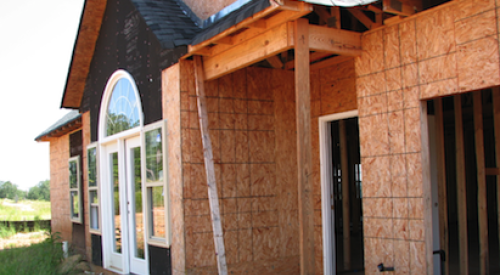If you want to fill a room to capacity at a home building conference, post a sign at the entry that reads: Learn the Secrets to Closing Every Customer.
I receive phone calls or e-mails from builders at least once a week denouncing their sales team's closing skills: "We hired them when all you needed to do was take orders, and now that you actually need to ask for the order, they lack basic closing skills." Well this is a good way to begin a conversation, because as the old saying goes, the first step to facilitating change is to acknowledge the problem.
But the next step is where many managers and owners often get off track on the secrets to closing. Most say they want every presentation to conclude with the sales agent's asking for the sale.
I respectfully disagree. Yes, it's true that the No. 1 reason customers don't buy is because salespeople simply were not asking. But to define closing skills as a one-line commitment statement at the end of a sales presentation oversimplifies the issue and masks the process used by those who possess great skills in asking for the order.
So let's begin with the basics. Closing is a process, not an event. Closing begins at the first moment a sales professional and customer meet. Closing doesn't end until the customer buys at your community or jointly concludes with your sales professional that your community and their needs are simply not the right fit.
Although individual customer needs vary, commitments necessary to close a sale include seven specific prerequisites or tie-downs prior to gaining agreement to write the sale: the benefits of the new home outweigh the cost of staying put; the right location; the right community; the right builder; the right floorplan; the right homesite; and the right financing. Any shortcuts in asking for the order without commitments on all of the above and you and your sale professionals are blind squirrels looking for nuts.
The problem that many new home sales professionals have with closing is in understanding their role in the buying process. Many believe the key to improving their selling skills is to simply acquire more knowledge about what they have to sell, i.e. the community, the home, the features, the builder, etc. They then use this knowledge to weave a compelling story about how wonderful it will be to live in their community, with the belief that the more compelling the presentation the better their sales. Wrong!
Sales presentations without numerous "time outs" for customers' feedback that answers how your product compares with what they had in mind or gaining commitments on key sub-points simply postpones the mystery of whether a customer is a true candidate for a home purchase.
Great closers gain agreement on the most fundamental aspects of a home purchase throughout their presentation. By gaining conformation on sub-points, they become confident that asking for the sale is not an annoyance but rather the next logical step to solving the customer's home buying needs. The key is understanding the sales role as that of gaining feedback and using the information to influence the customer and solving needs. Sales agents who focus primarily on their presentation skills rarely become great closers. Those who rely on great questions and listening skills ascend to the top of our industry and become known for their outstanding closing skills. The choice is yours.
| Author Information |
| John Rymer is the founder of New Home Knowledge, which offers sales training for new home builders and real-estate professionals. He can be reached at john@newhomeknowledge.com. |











